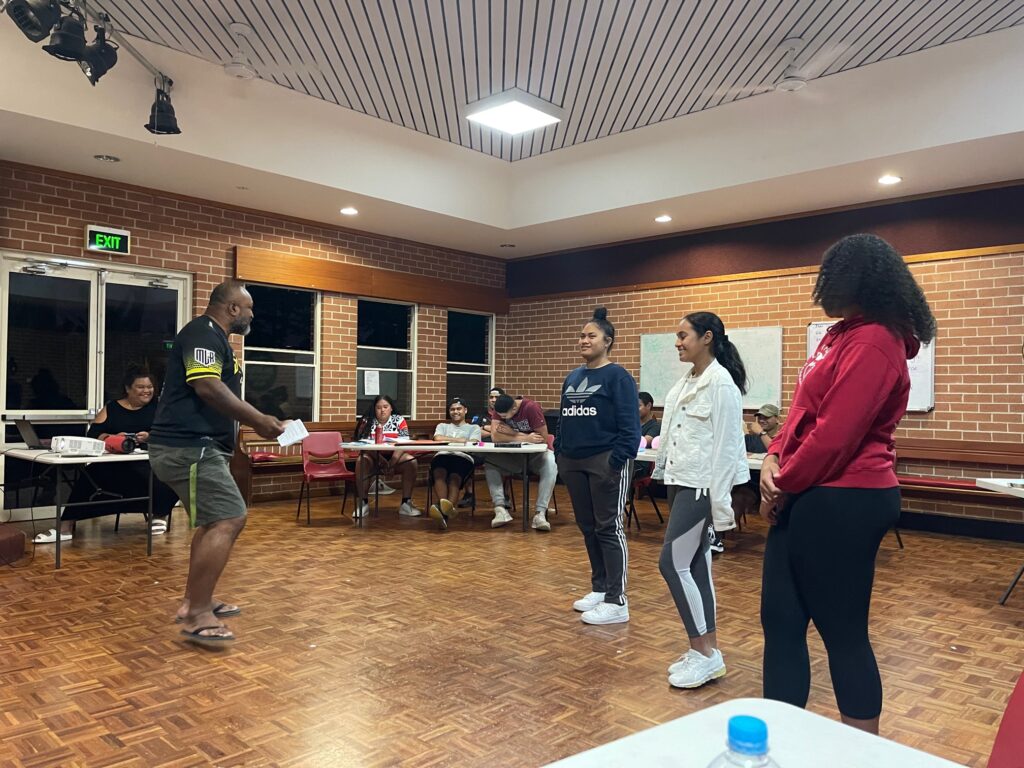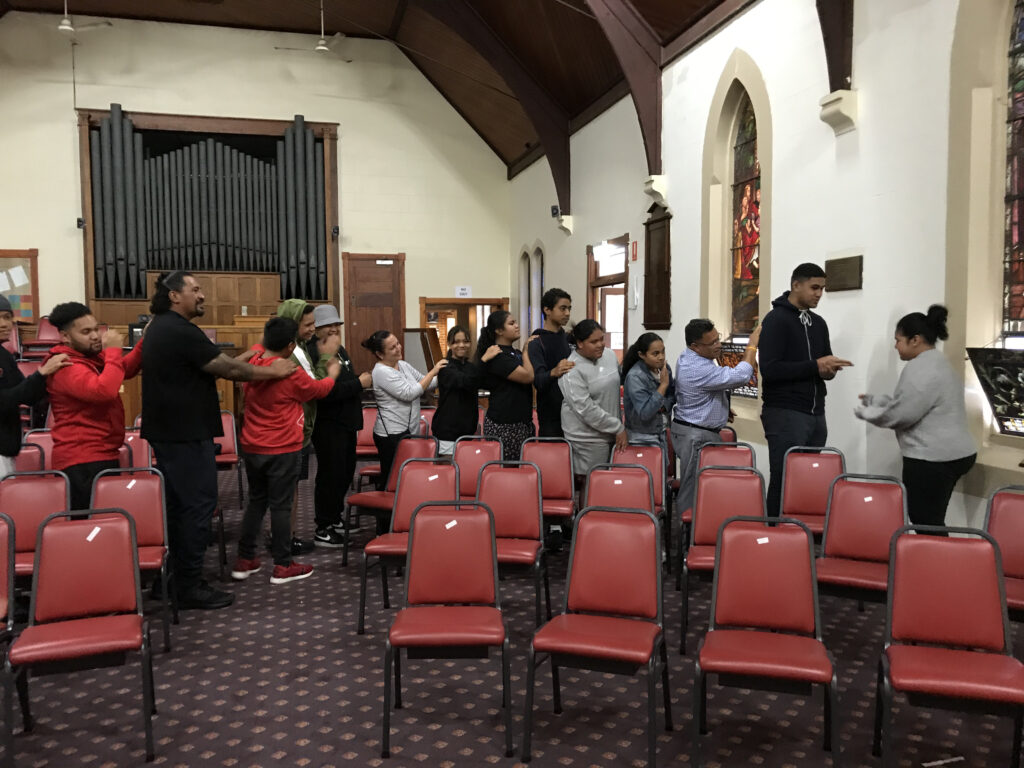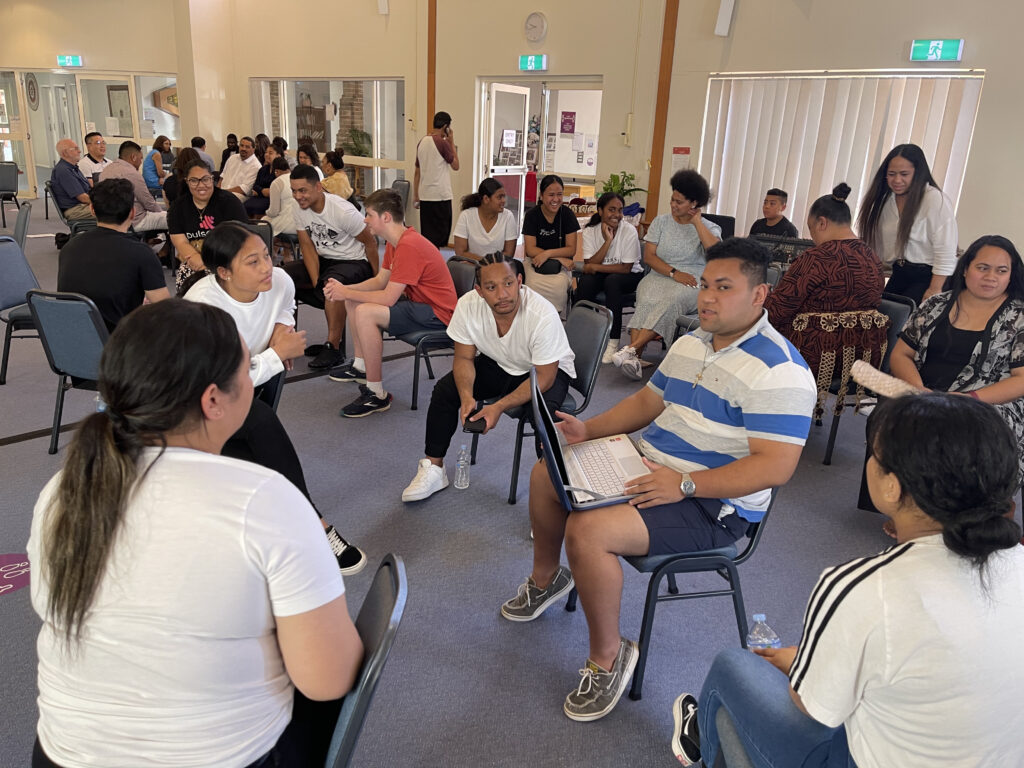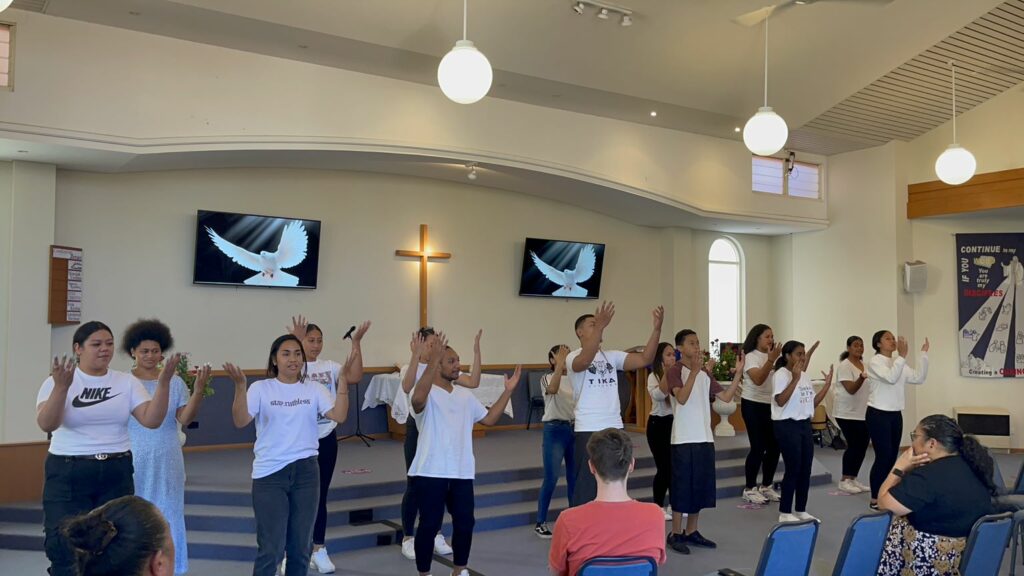Three takes on an Intergenerational Church
As we explore what it means to be an Intergenerational Church, we hear from three people engaged in ministry at a Congregational, Presbytery and Synod level about what it means to be inclusive of all generations in the sharing of our faith and living out God’s mission.
Mel Quilliam, Children’s Coordinator, Alice Springs Uniting Church, Northern Synod
“When I was first introduced to the term Intergenerational, it really made me think about what that looks like in our congregation,” says Mel Quilliam, the Children’s Coordinator at Alice Springs Uniting Church.
“As someone engaged in Children’s ministry, what did it mean to run a service that is accessible to people from different generations, so that anyone from any age group can access it, engage, contribute and feel they have learnt something?”
As a Godly Play story teller and programme coordinator, Mel has found the simple act of engaging people in stories from the Bible – and allowing them to wonder – has provided many fruitful opportunities to engage people across all generations.
“The one person who tells me the most that she loves Godly Play is in her 80s!” says Mel.
Godly Play is a method of telling Bible stories that invites the listener to connect the story with personal experience through wondering questions and open-ended responses.
Mel explains that before she was introduced to Godly Play, her congregation was wondering how they could engage the children in their community.
“There is a default to put the children outside of the main worship service and we began running Sunday School, often using Google to help us come up with theological ideas to suit the Lectionary. I always felt a bit uncomfortable simplifying passages theologians had debated by theologians for centuries.”
Then, Mel attended a taster training session with Judyth Roberts, an advocate from Godly Play Australia. And she's never looked back.
“I just felt like this was something I had been missing – the opportunity for kids (and adults) together to hear stories, to wonder, be curious and to question.”
“Often I’ll do a story in the main service and we’ve run an Intergenerational Bible Study using Godly Play where the youngest was two and the oldest was 80.”
“As adults we don’t often wonder, someone else has done the wondering in the sermon for us, but people really appreciate the opportunity to respond personally and to do it creatively.”
In July Mel helped support a Godly Play training in Darwin that included representation from across the Synod and other denominations, including from as far afield as Derby, Nhulunbuy and the Tiwi Islands.
Every fifth Sunday, Alice Springs Uniting Church runs a family service. Mel recently led the service with her husband, Frontier Services Bush Chaplain Benjamin Quilliam.
“For our Prayers of Adoration, we played a short video of our 0-4-year-olds telling us what they love about God. The Prayer of Invocation was written by our 5-12-year-olds after we spoke about what it means to invite God into our service and into our lives, and one of the kids read it out. For the Prayer of Confession everyone was invited to write down what they wanted to Confess and then we symbolically tore them up, and the kids collected them in the offering bag, offering a reminder that their sins were forgiven.”
Children are also invited to be involved in the service. They help collect the offering, operate audio and visual equipment, and pack up Communion.
One of the unexpected outcomes of thinking Intergenerationally has been the intersection with what it means to be Intercultural.
After attending an intergenerational conference, Mel along with others in her Synod recognised that First Peoples and culturally diverse communities are already ahead of the game in Intergenerational ministry and recognising there is much to learn, have begun a weekly Synod Prayer group.
“Among a lot of things we realised is that people in these communities pray a lot more unceasingly than we do.”
Mel expects her understanding of what it means to be Intergenerational will be a lifelong journey but one worth the effort.
“Our children and young people need to be able to walk into the Church and feel like they belong. We say we are welcoming, but that needs to be reflected in our actions as well as our words.”
Rev Dr Matagi Vilitama, Mission & Leadership Presbytery Minister, Georges River Presbytery, NSW/ACT Synod
“Being Intergenerational should be the norm. Our communities of faith should reflect our homes and our communities. Something’s not right when there’s only a one-generation model of ministry.”
Rev Dr Matagi Vilitama is the Mission and Leadership Presbytery Minister in Georges River Presbytery. The former chair of the UCA Niuean National Conference, Matagi says in many culturally diverse communities, there is a tight community connection that spans different generations.
“Coming from the Pacific, we are communal, we are relationship-based, we are a village, so we approach church as a village, which means we are Intergenerational.”
“In an island community, it is often the grandchildren who will be assisting the grandparents, and of course, there is the interaction between grandparents and grandchildren that involves the passing on of traditional wisdom and their cultural and spiritual heritage.”
“That practice needs to be evident and highlighted in our congregations - different generations need to work together.”
He recalls a practice from his congregational ministry where young people were invited to sit with senior members of the congregation during morning tea.
“This had two functions, it provided our seniors with someone to listen to their stories, which they did not always have, and the young people were enriched by being able to relay the story to someone else.”
“When we are Intergenerational as a church it really is very special. It creates a family environment.”
As it looks with renewed focus on the future, Matagi says Georges River Presbytery is taking a holistic approach to doing mission that involves all generations.
“We often place an emphasis on adults when we talk about mission, but it should be Intergenerational, it should be about how we do mission together.”
“It is part of our mission plan in Georges River to grow healthy congregations, that means it needs to be Intergenerational. It also needs to be growing young.”
One step they have taken is establishing a Presbytery youth movement. A working group of youth mentors and youth leaders from different congregations across the Presbytery, supported by the Presbytery leadership, meet monthly to identify areas of need and how they can support them.
“I am careful not to impose my ideas but to allow the group to organically grow and discern where God is calling them,” says Matagi.
“Despite the setbacks of COVID, there are glimpses of growth and the passion has not been dampened.”
Matagi acknowledges Intergenerational ministry is not easy, especially when it involves doing something new and the transition of power and decision-making roles to a new generation.
The Presbytery has been intentional in encouraging younger members to participate in decision-making roles and Matagi says this is beginning to bear fruit.
“It is challenging, and we have a lot more work to do. Building a new culture takes time and resources, but we trust in where God is leading us.”
Janine McDonald, Uniting Generations Coordinator, Synod of WA
"Uniting Generations recognises that ministry with children, youth, young adults and families is inextricably linked with all other ages and forms an integrated approach to enable, build and nurture the whole faith community," says Janine McDonald, Uniting Generations Coordinator in the Synod of WA.
"Intergenerational ministry highlights the truth that all people are valuable and important members of the Body of Christ (Romans 12:4-5)."
"It nurtures Christ-centred community, bringing together two or more generations in planned and purposeful settings, where multiple generations are mutually invested."
Janine says Western Australia has several successful Messy Churches, intergenerational playgroups, music and dance groups, and even Minecraft groups. There are also examples of Intergenerational worship where people of all ages are involved in the service preparation and leadership.
Janine offers the below from GenOn Ministries as a quick snapshot to evaluate Intergenerational Ministry in your context:
- List all the worship, study, service and fellowship activities that your church currently offers.
- Based on the definition of Intergenerational ministry, above, circle any that meet those criteria.
- Star the options that you think have potential to include more generations.
- Choose one of the starred options.
- Note down the ways you could modify it to become intergenerational.
Young people engaged in ministry, training and networking in the Georges River Presbytery.




